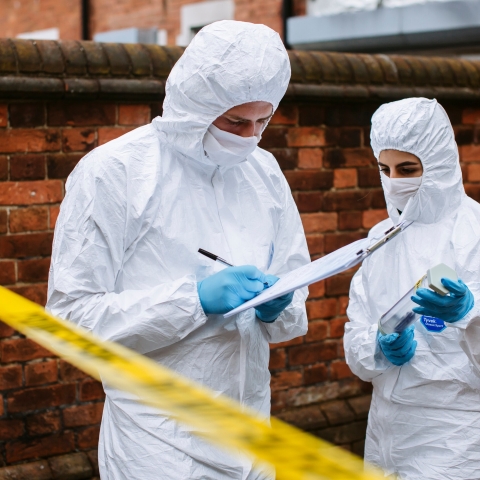

Gaining experience
Competition for jobs in Criminal Justice is fierce and work experience could be the deciding factor for securing a graduate job. However, finding experience will take time and effort, so you will have to work hard to stand out from the crowd. Look at job advertisements and job profiles to identify areas where you need to build more experience.
Opportunities available in Criminal Justice

Volunteer with the Police
Individual police forces offer volunteering opportunities in roles including:
- Special Constable
- Victim Liaison Volunteer
- Police Support Volunteers
- Administrative Support Volunteers
Hampshire Constabulary offer an Observer Scheme which provides the opportunity to shadow police officers across a maximum of three shifts.
Where to find other Criminal Justice volunteering opportunities
- The King's Trust (formerly known as the Prince's Trust) offers opportunities for 16 to 30-year-olds to develop skills and confidence through a wide variety of activities.
- Victim Support - An independent charity that provides support to people affected by crime or traumatic events.
- NACRO - A social justice charity offering information, advice and guidance, courses, consultancy and interventions to vulnerable people within communities.
- Youth Justice Board - A resource hub for those working or looking to work in youth justice.
- Police.UK - A useful list of UK police force websites, as well as information about Careers & Volunteering opportunities.
- Clinks - Represents the voluntary options within the sector, providing a directory of organisations working with offenders and listing both paid and unpaid training and volunteering opportunities.
Types of opportunities available through the University
While you're studying, you can gain experience through:
Placements usually last between 6-12 months and can be taken as part of your degree programme. Criminal Justice placements can be found in Crown and County Courts, Law Firms, Charities and Non-Governmental Organisations
You can find placements through:
There are fewer internships offered in the criminal justice sector than in other areas. Many organisations either focus on volunteering or don't offer work experience due to the confidential or classified nature of the work. The organisations listed below give you an idea of the type of opportunities that may be available. You will need to do thorough research to identify further specific opportunities:
There are lots of volunteering opportunities in criminal justice, including many in the charity or non-profit sector. Due to the nature of the work involved within certain areas, when choosing a role it is important to ensure that the organisation you volunteer through has a robust safeguarding structure in place.
Try looking through the volunteering vacancies on MyCareer, and check regularly as opportunities are added frequently.








